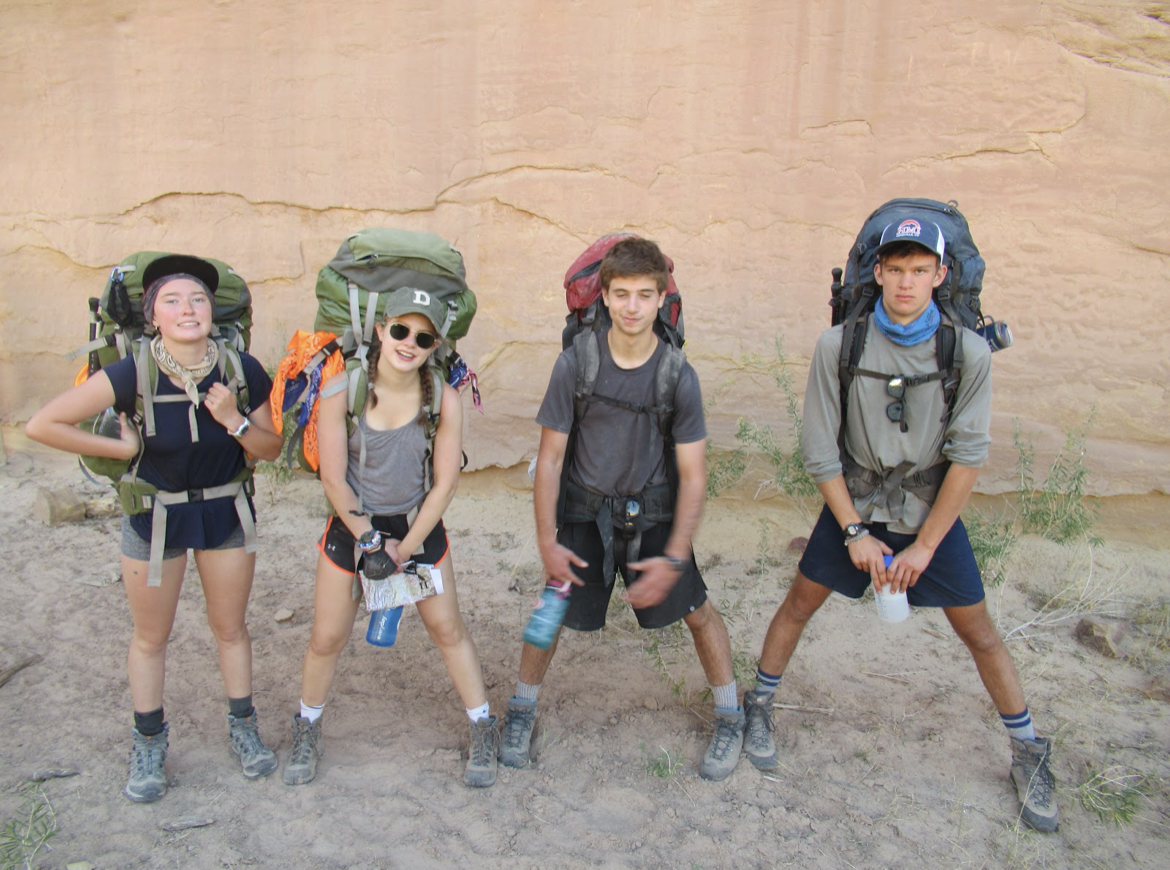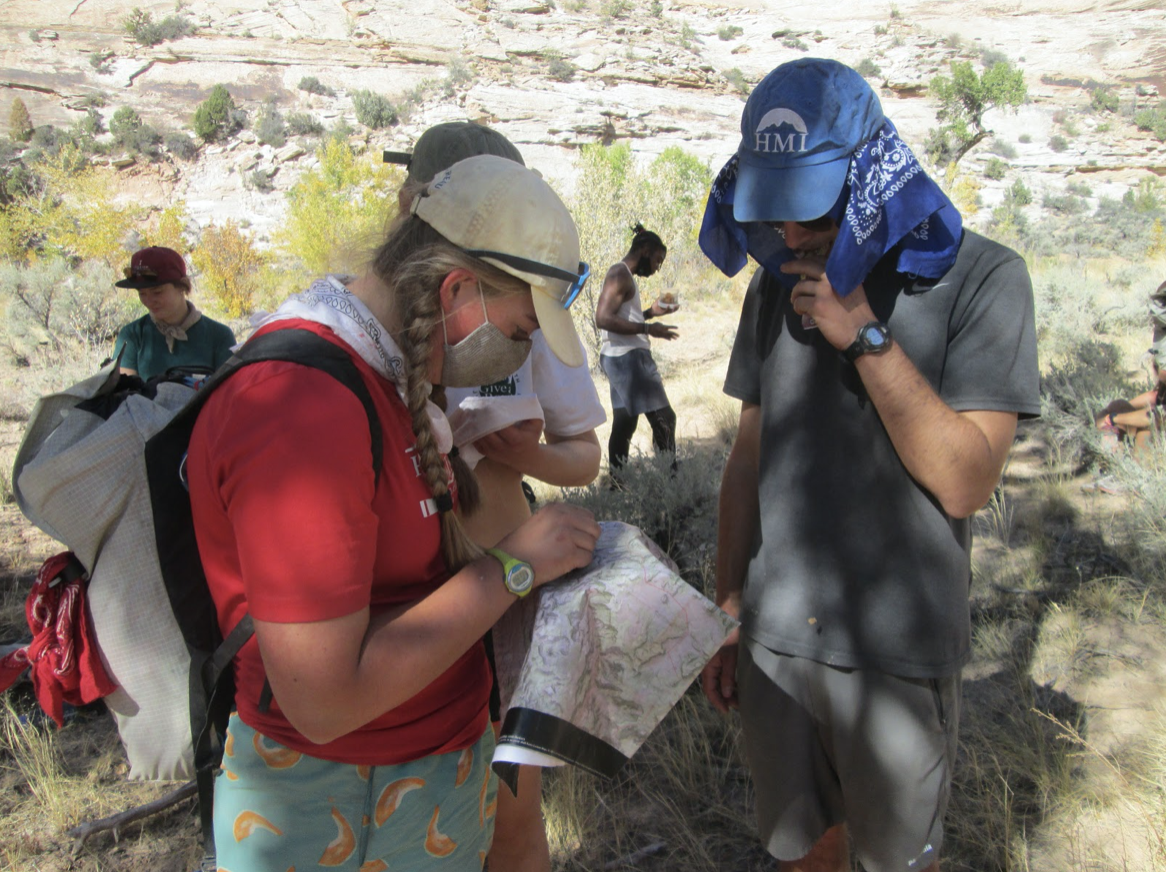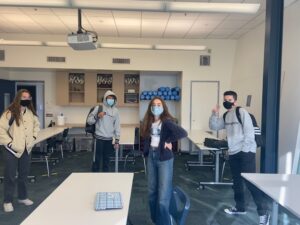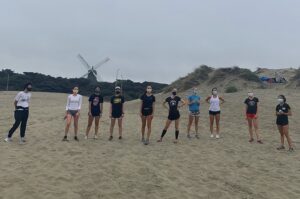During the age of COVID-19, some high school students have fled the isolation of Zoom-learning from their homes to attend residential semester-long programs, where they spend time with others in a “safe” bubble in an immersive — and somewhat normal — learning environment.
For Lick-Wilmerding students, life during the pandemic is governed by the school’s Distance Learning Plan (DLP). Students are on Zoom at least four hours each school day and then spend more time online completing homework and doing extracurriculars. More screen time is often needed to connect with peers outside of class. Going to school on Zoom for a prolonged time — now for more than eight months — can be exhausting. Many students are itching for time outdoors with friends and for a sense of normalcy.
Sedi-Anne Blachford ’22 is one of those students who looked to a residential semester program as an alternative to distance learning.
“I had a really hard time with distance learning. I found the isolation really challenging and being fully online was such a drain on me,” Blachford said.
Paget Chung — a junior who spent her fall semester at Urban but will spend her spring semester at The Mountain School in rural Vermont — had a similar reaction to distance learning.
“In regular school, I would be waking up early, going to school, having sports practice after school. had a lot going on, but now I just feel more fatigued, and it’s more unsatisfying,” she said. “I haven’t actually left my house before I go to bed, but I’m still exhausted. I also just get distracted more easily over Zoom.”
Blachford explored the semester-long programs for high school students offered by the consortium of nine schools in the Semester School Network (SSN).
The SSN schools all offer students college preparatory classes combined with experiential learning opportunities, such as exploring different parts of the world or living on a farm or in an arts residency. Students learn how to live independently and to navigate the challenges of experiential learning and working in an array of new environments. They expand their field of learning and their world view. After a semester, students return to their four-year school.
Every year, Lick students have the opportunity to attend semester programs, and one or two do. Urban has a program in which four juniors have the opportunity to spend a semester away from home.
Blachford applied to an SSN program after she realized that fall classes at LWHS were likely to continue by Zoom. Blachford chose to spend the fall semester of her junior year not at LWHS but at the High Mountain Institute (HMI), situated at nearly 10,000 feet in the Rocky Mountains outside of Leadville, Colorado. She appreciated that HMI offered in-person interactions with other students, as well as in-person classes and that she would not be cooped up in her home in the city but have access to an outdoor environment that she loved.
Programs offered at HMI include a High School Semester program, a High School Summer Term, an Apprentice Program and a Gap Year program. Blachford joined the High School Semester program, which boasts three expeditions for students. Altogether, students spend five weeks off-campus on expeditions. During the fall semester, the trips include backpacking through the Colorado mountains and hiking in the canyons of Utah. To make time for the expeditions, students’ school days on campus are longer.
On or off-campus, HMI’s protocols encourage students to spend time outdoors with their peers, despite the pandemic. Students are not allowed to use their cell phones and have limited time on their computers.
When the pandemic hit in the spring, HMI was forced to shut down their campus and send all students back home. They then assembled a task force and implemented a plan that would allow them to bring students back to their campus safely. Many of these guidelines came from the Lake County public health officials as well as from the National Outdoor Leadership School (NOLS), known as a leader in wilderness education.
HMI students and others in the HMI community must strictly follow COVID-19 safety protocols; students have to wear masks while outside or in any building except their cabin.
Before arriving on campus to begin their HMI semester, students were tested for the coronavirus. They then spent the first three nights sleeping outdoors. After those nights, they were put into eight to ten person groups and took off on their first expedition in the mountains of Colorado. This sixteen-day trip also served as a way to isolate students in pods.

Photo courtesy of Sedi-Anne Blachford
After returning to campus, students, wearing masks, were permitted to intermingle with people from other pods. They were also allowed to be with their cabin-mates without wearing masks or practicing social-distancing protocols.
HMI is located five miles outside Leadville, Colorado — with a population of just 3,000 — which gives them the ability to stay as isolated as possible.
Classes at HMI emphasize the resources of nature surrounding their mountain campus.
“The science class that I’m taking is a field science course, so we go on a bus ride to a river and take samples of macroinvertebrates to see if restoration has been effective in that area,” said Blachford. “It’s been such a cool experience to do such a hands-on class.”
The time spent outdoors — both during class time and during expeditions — provides students with the opportunity to learn how to appreciate, live in and explore nature.
Because the school is able to provide in-person education and a sense of normalcy away from screens, by interest in applying has increased greatly. Lupe Bobadilla, the Admissions Associate & Diversity Recruitment Coordinator at HMI said, “We’ve received a lot more inquiries and a lot more people interested in HMI for the fact that the students don’t want to be behind the computer. I’ve received calls from parents and from students inquiring if we had availability for the upcoming spring semester, but we’re over-enrolled. The possibility for us to pull a student from the waitlist is very low.”
No one at HMI has tested positive for the coronavirus during this semester. However, some students did get Giardia — a parasite typically caused by drinking unsafe water. Giardia may cause abdominal pain, diarrhea, fatigue, dehydration and flatulence. The outbreak of Giardia spread through the HMI community after the expedition to the San Rafael Swell. Because Giardia is not airborne and is less contagious than COVID-19, little changed at HMI in regards to the safety protocols. However, hand-washing became more frequent and infected students took trips to receive antibiotic treatments. Everyone recovered from the outbreak.
The Mountain School, run by Milton Academy of Milton, Massachusetts, is also a member of SNN. The Mountain School, set in central rural Vermont, challenges students academically and offers the opportunity to study for a semester away and work on an organic farm. The Mountain School was the first semester school in the U.S.
Similar to HMI, The Mountain School in the time of COVID-19 also requires safe social-distancing practices by their students. When students arrive at The Mountain School, they have to quarantine from all other people for one week; the following week students may only come in contact with their dorm mates. After these two weeks, students are allowed to interact with other people on campus. The campus is isolated enough so that COVID safety protocols are somewhat relaxed while outdoors and in dorms. However, students wear masks and social distance while in other buildings.
During the past fall semester — because of its small size and isolated location — the Mountain School was able to create a bubble that sheltered the entire school.
Farming is an essential part of The Mountain School’s program. The majority of food consumed on their campus is grown on the farm. Each student is responsible for farm chores, including harvesting thousands of pieces of fruits and vegetables, caring for the livestock and collecting sap from maple trees to make syrup.
Chung, who is attending The Mountain School spring semester, is looking forward to its challenges.
“I’m very excited to learn things like splitting wood or tapping maple syrup, it sounds super fun. I have limited experience but I know they don’t expect any experience from students arriving, especially people coming from urban areas,” she said.
The Mountain School, like HMI, integrates classroom learning with the surrounding environment. The Mountain School requires students to take an environmental class that involves exploring the acreage around the campus and studying, for example, the effects of climate change on the surrounding forest. Students gain independence in the outdoors through the school’s outdoor program, which includes hikes around the area, cross-country skiing and a three-night solo camping trip.
Because of its academic offerings, small class sizes and close student-teacher relationships, Chung is confident that she will be able to return to Urban more than prepared for her senior year.






